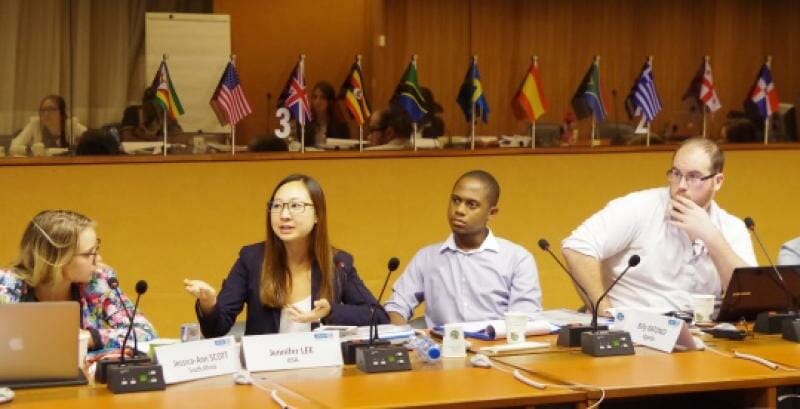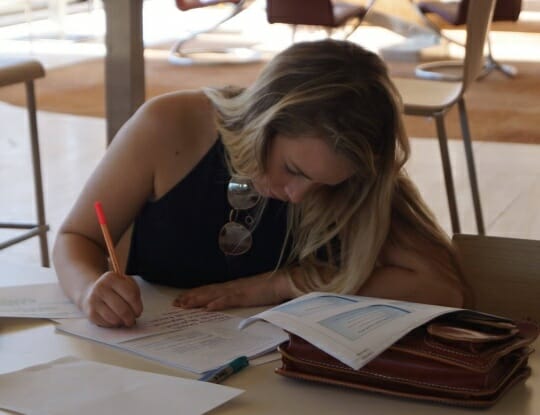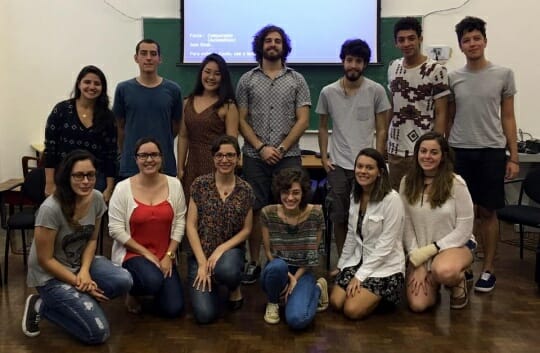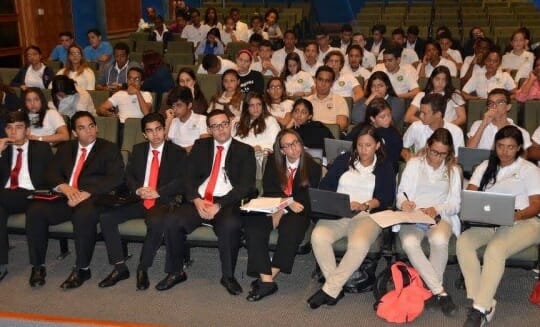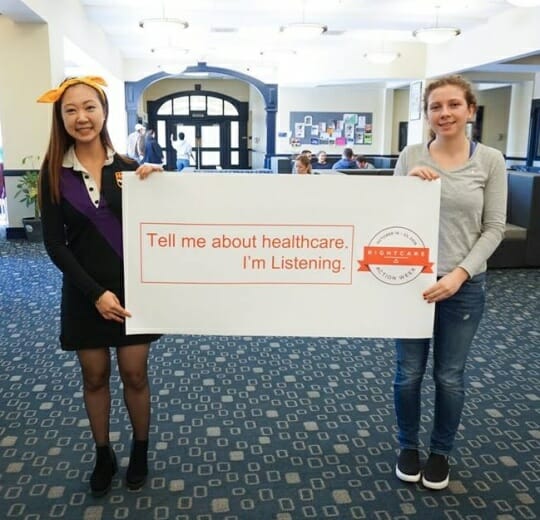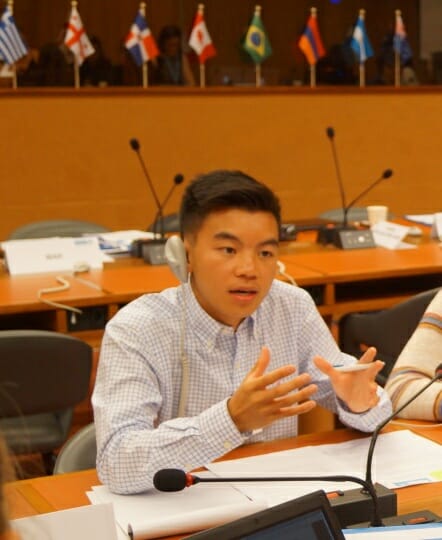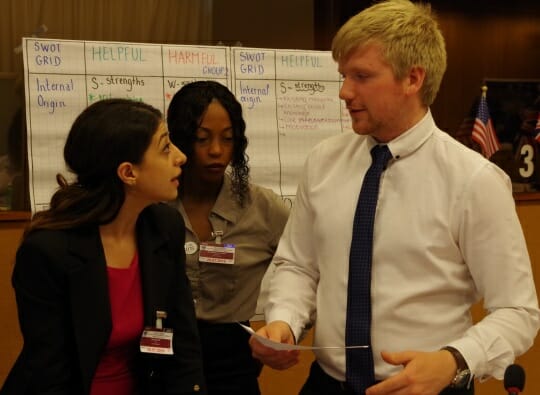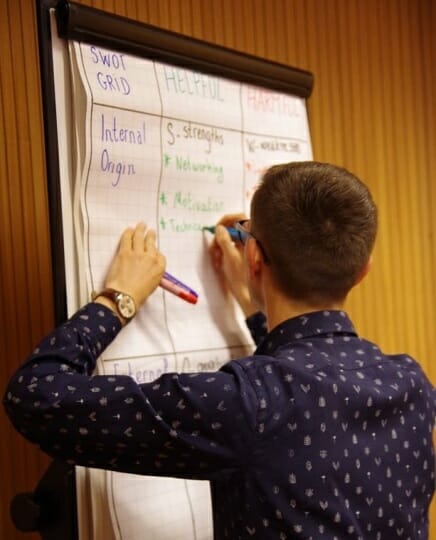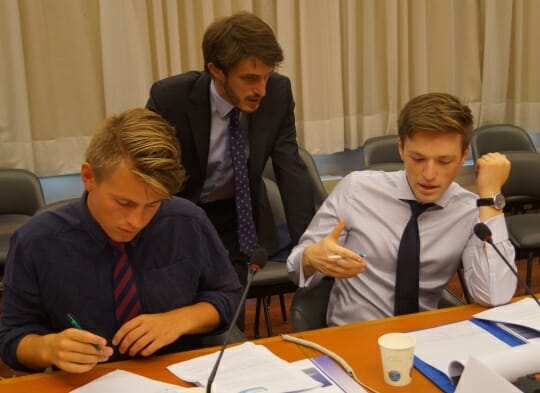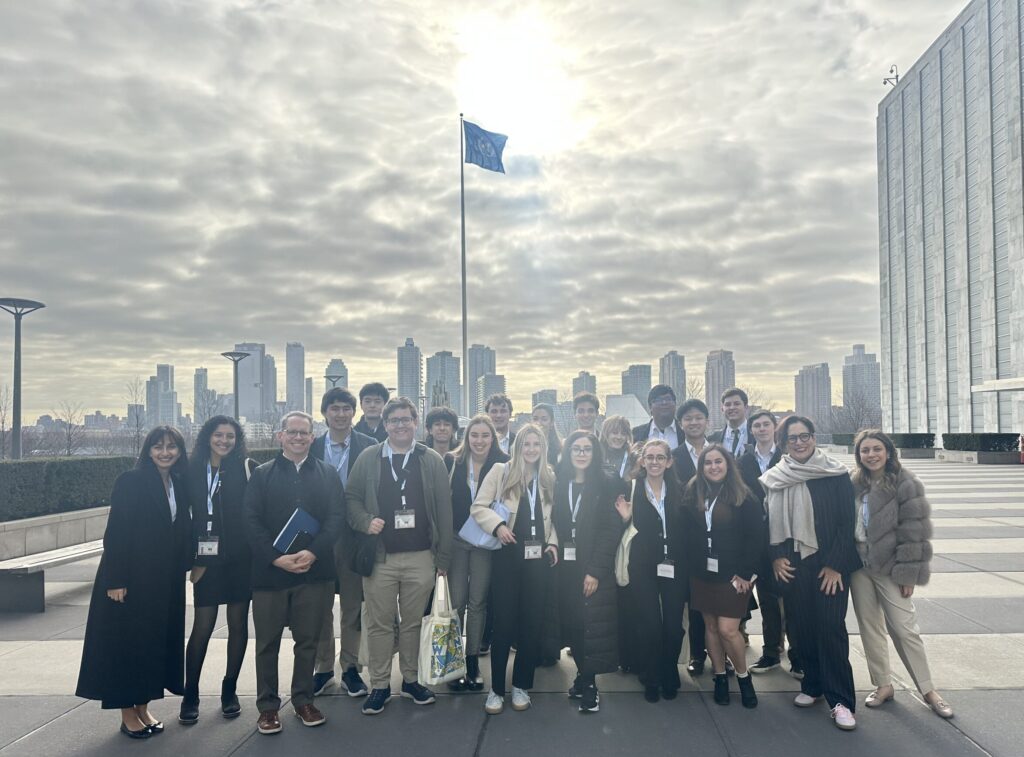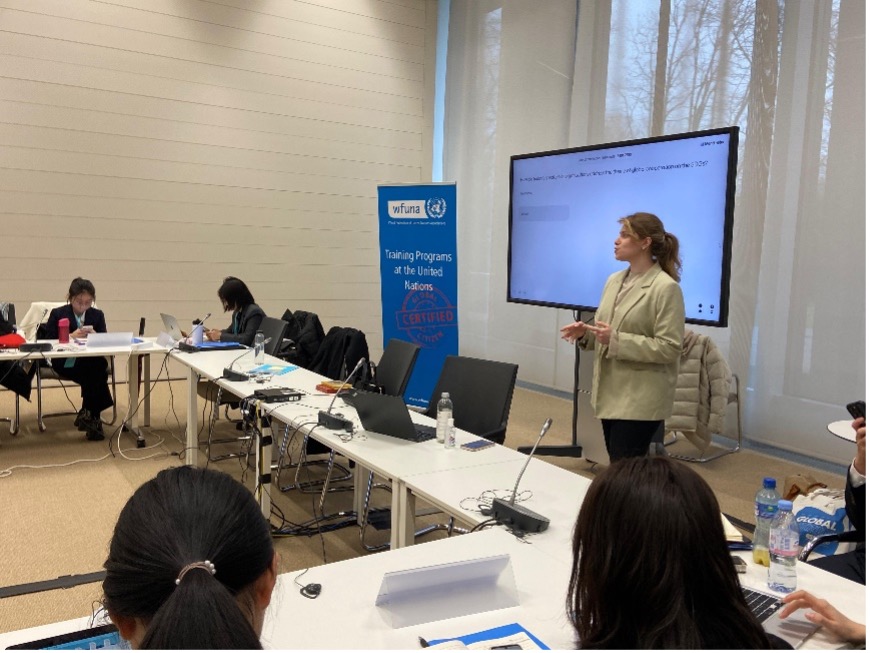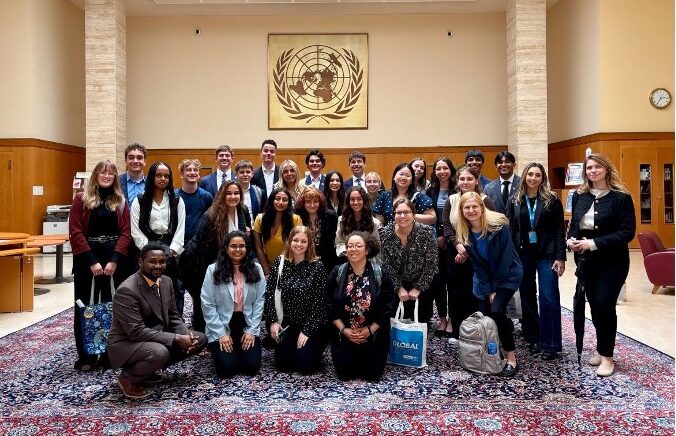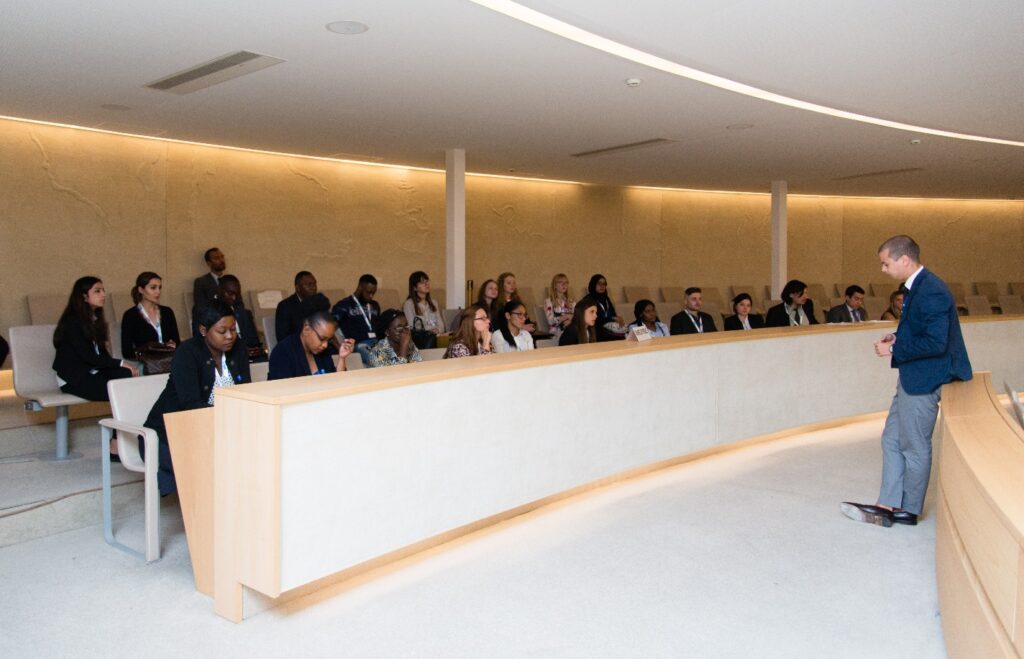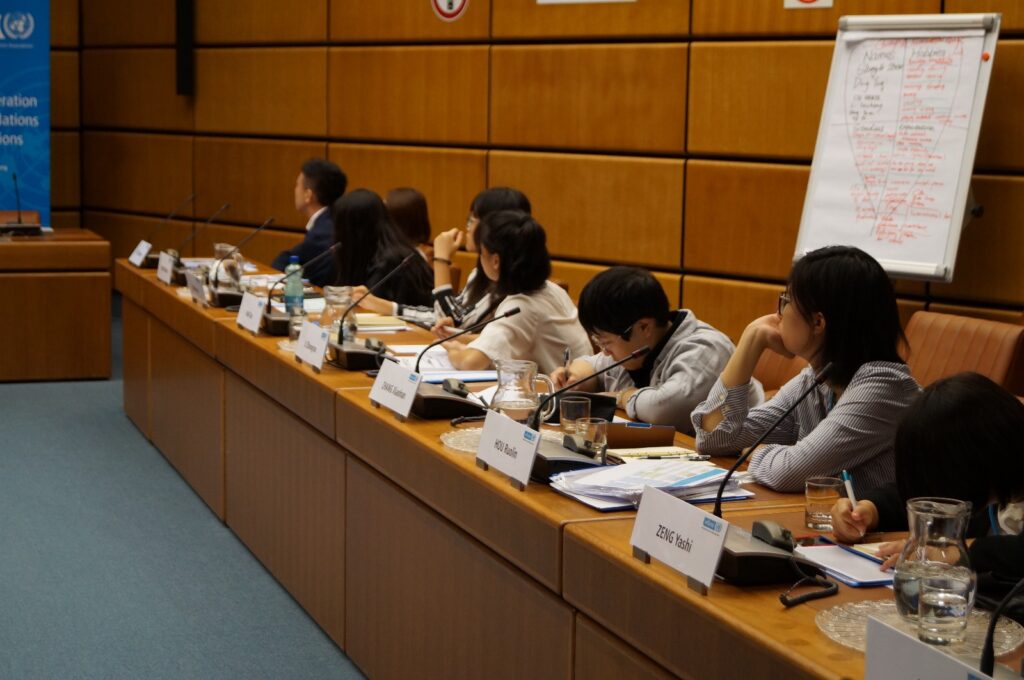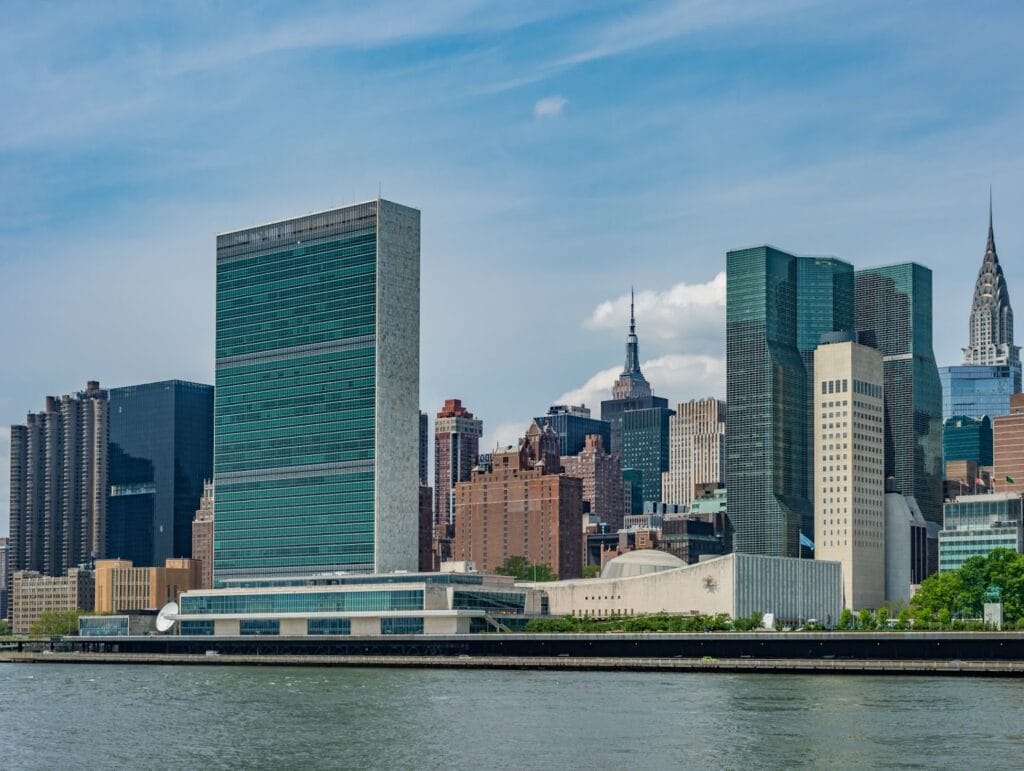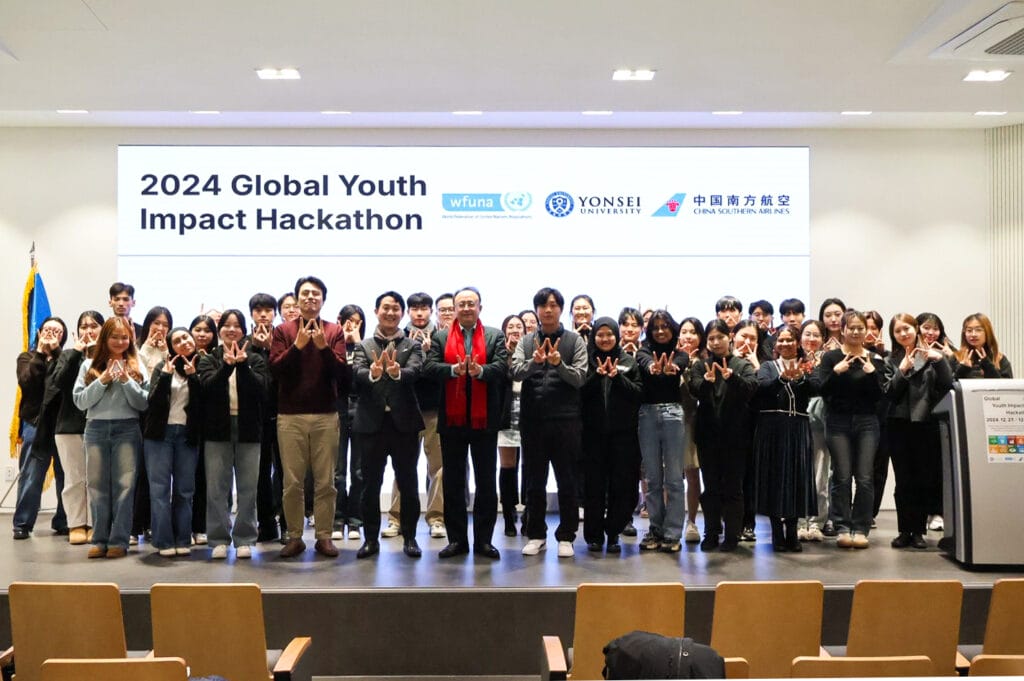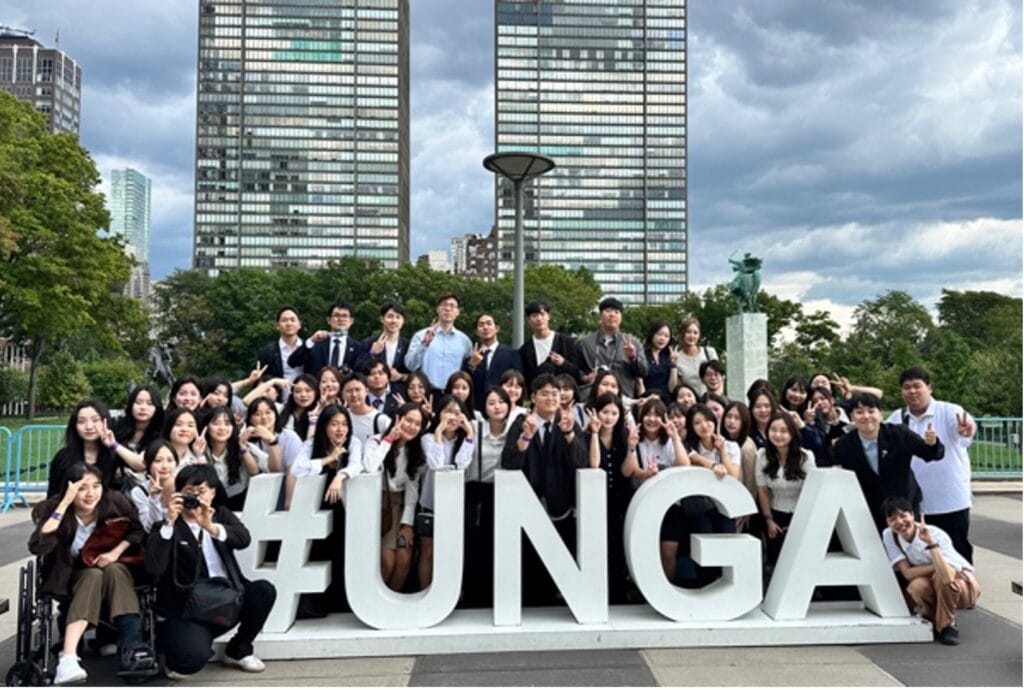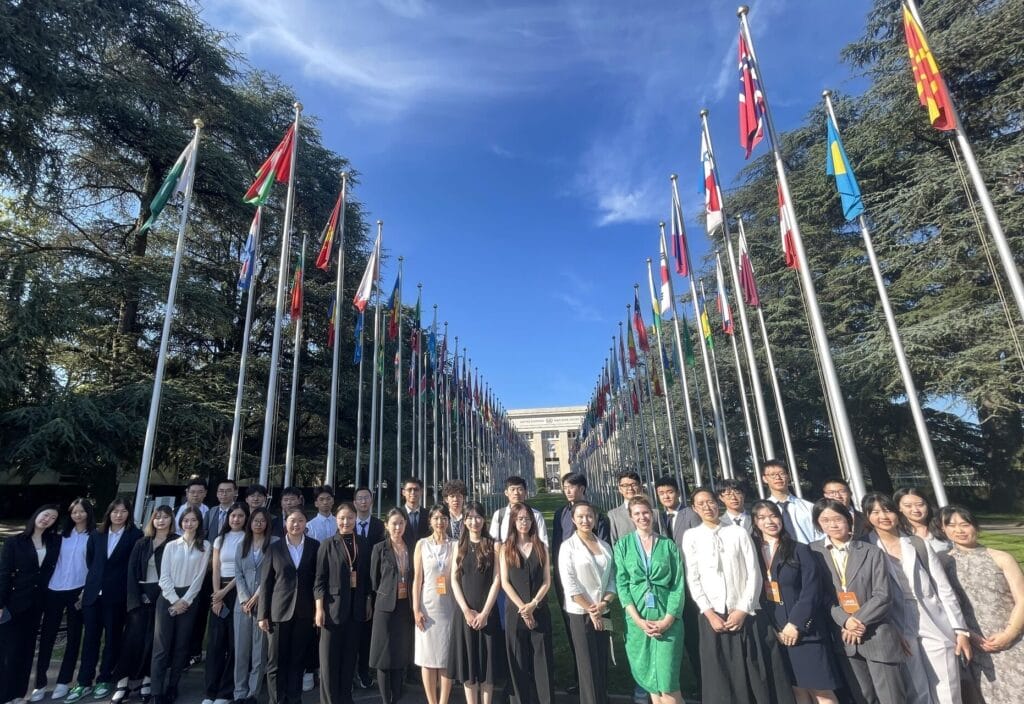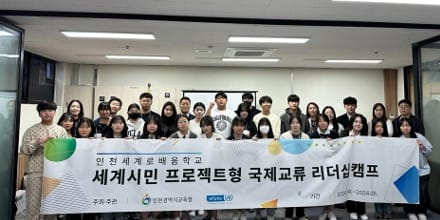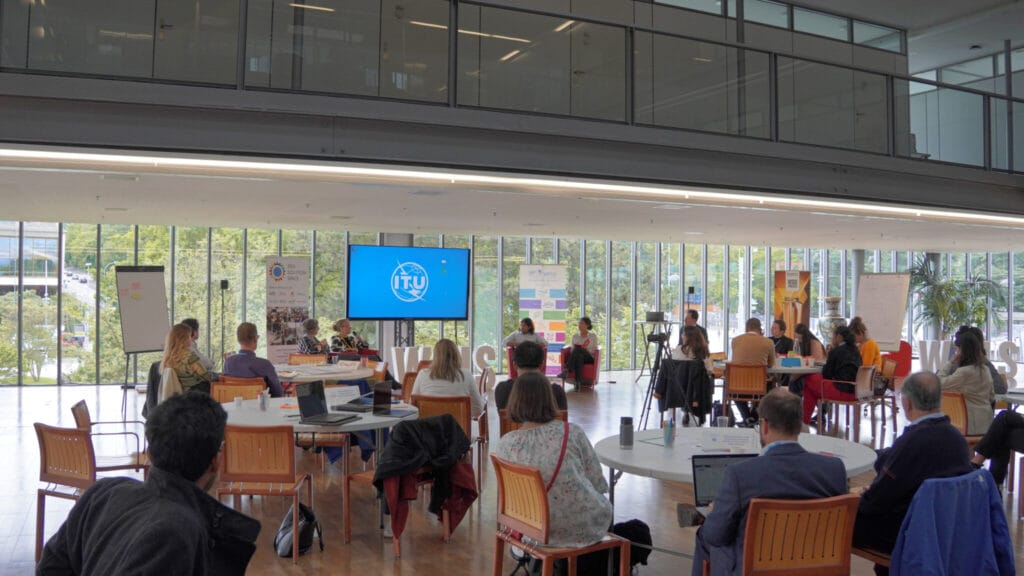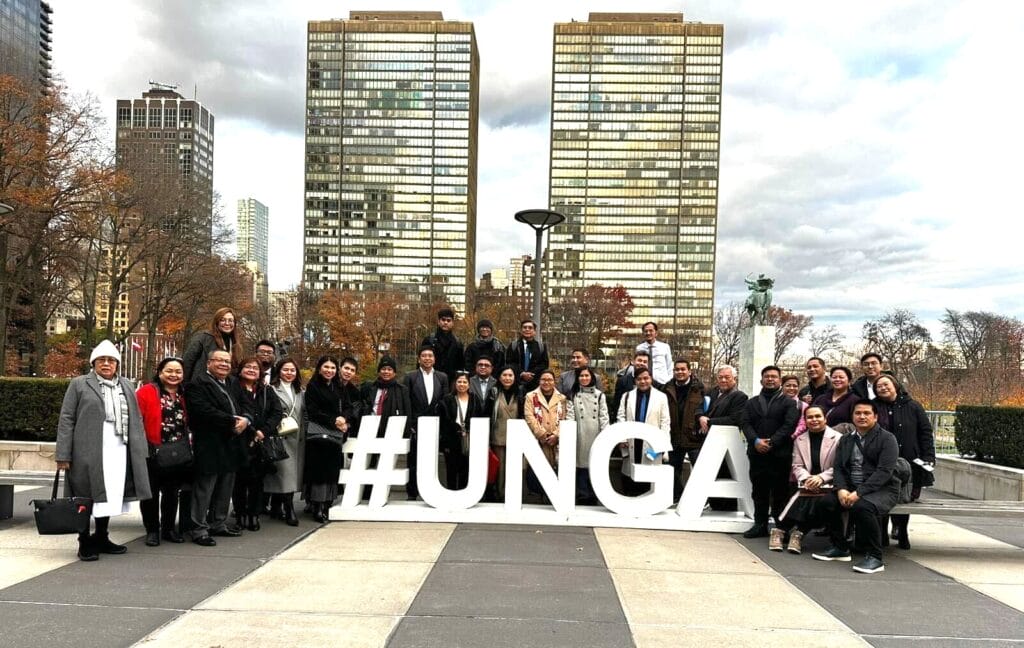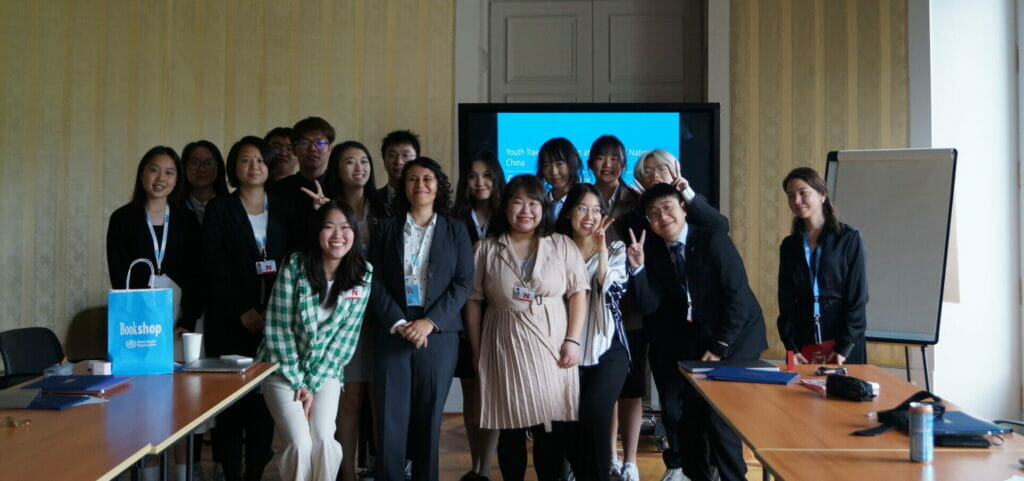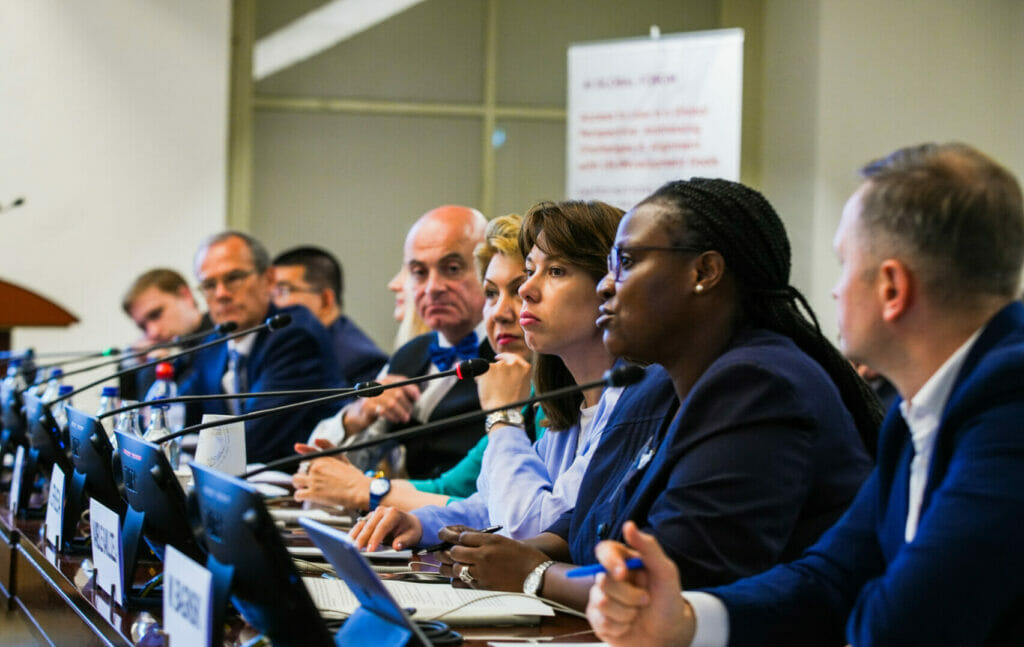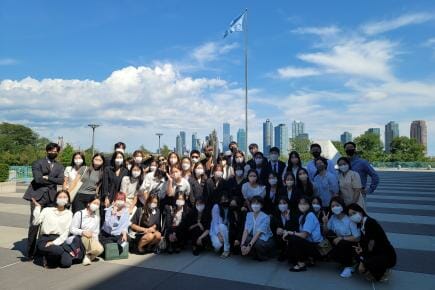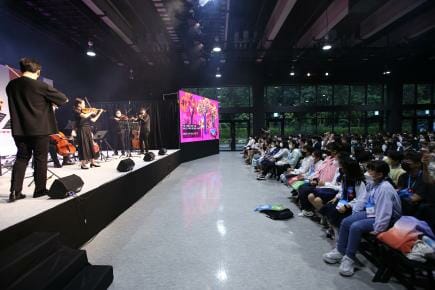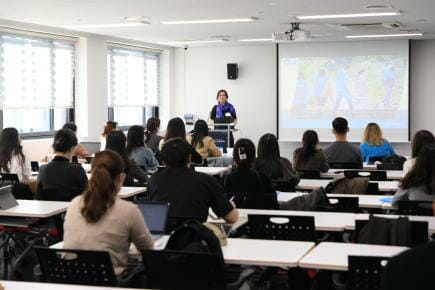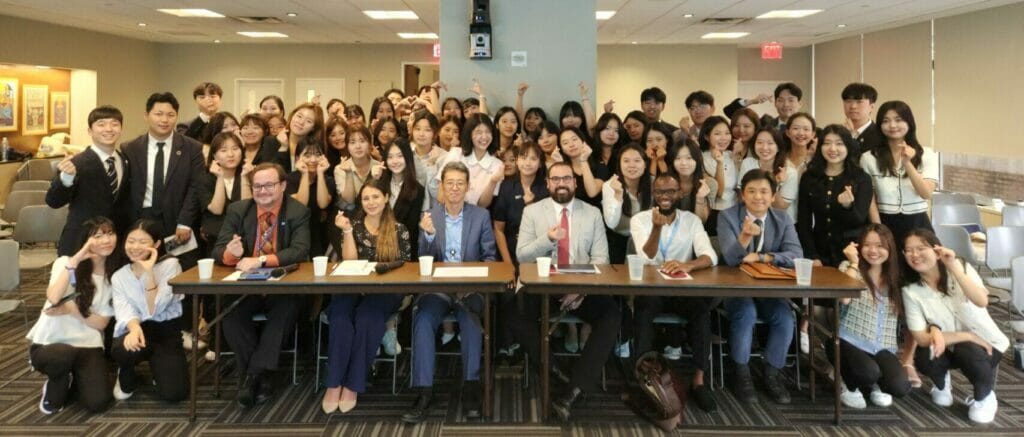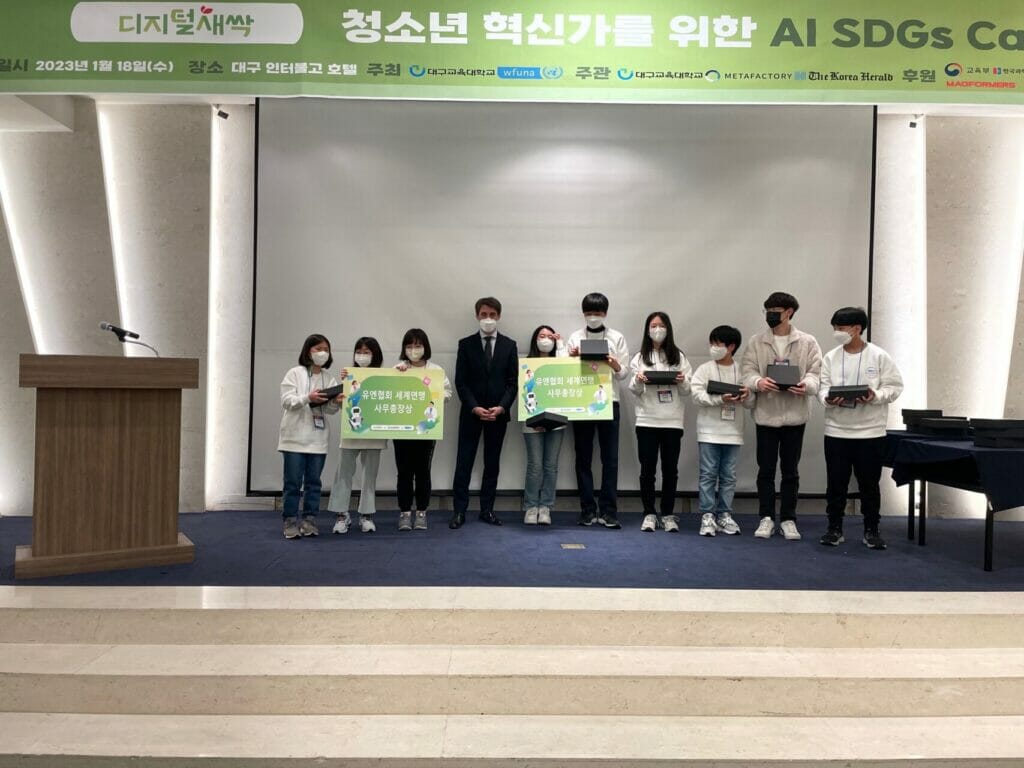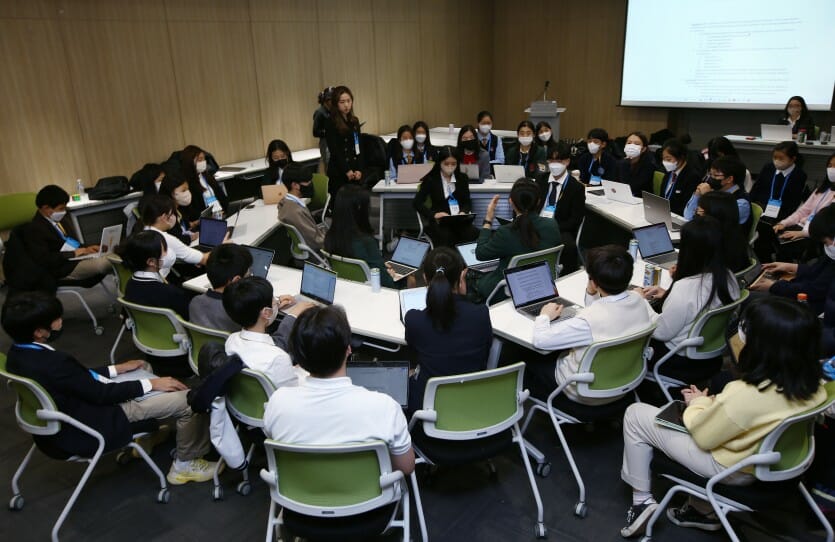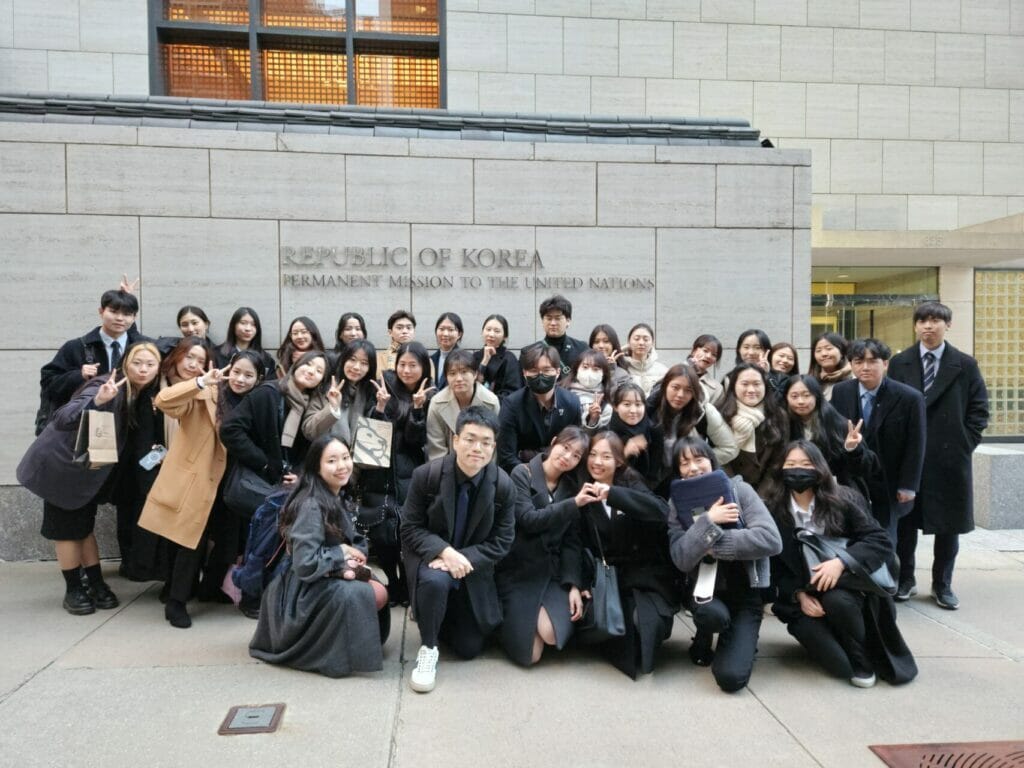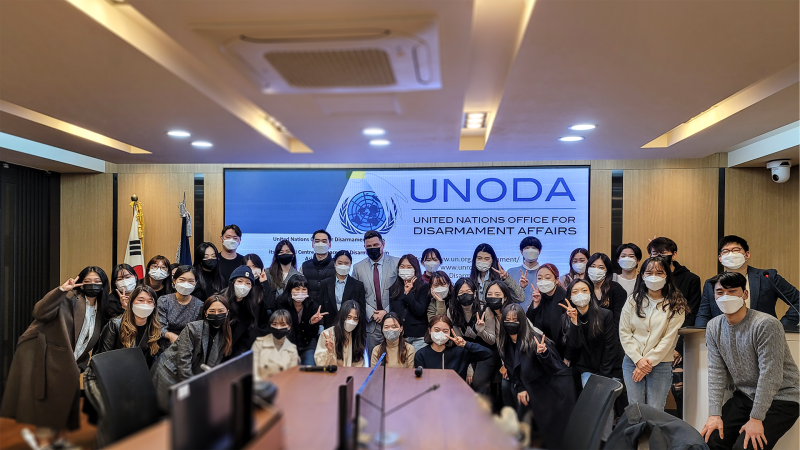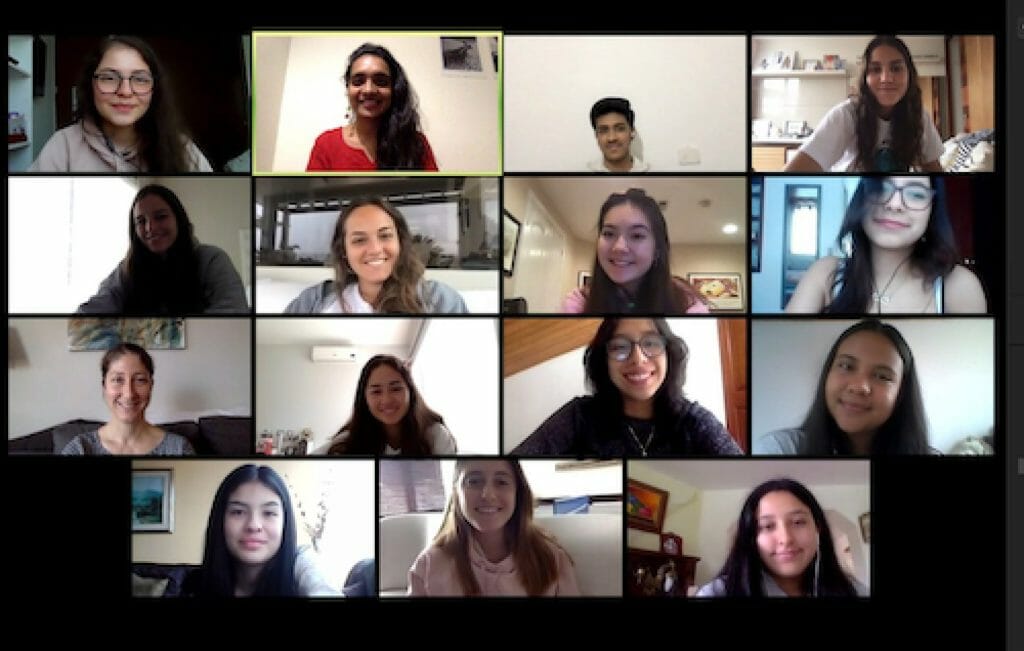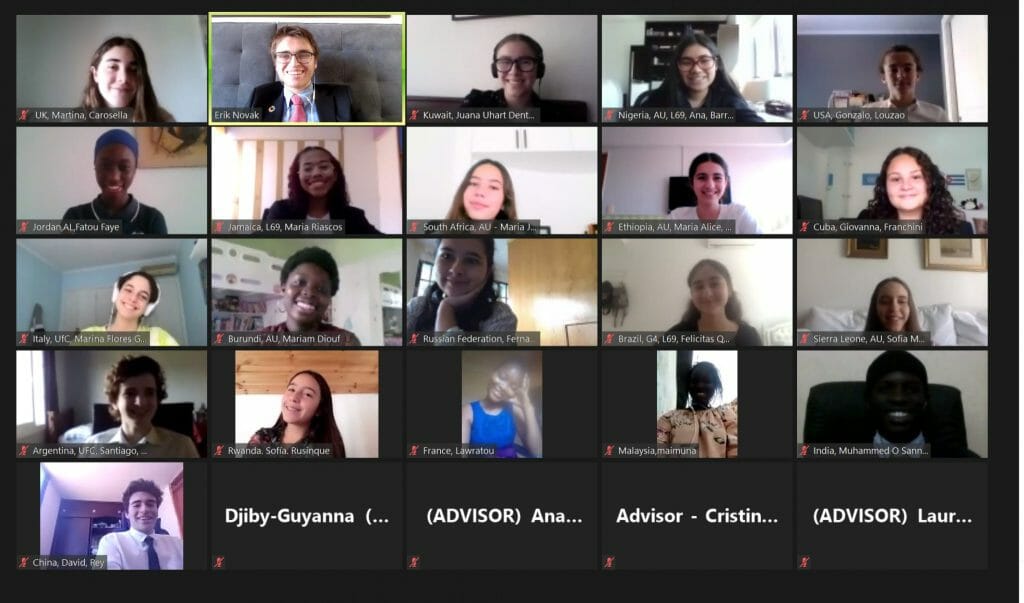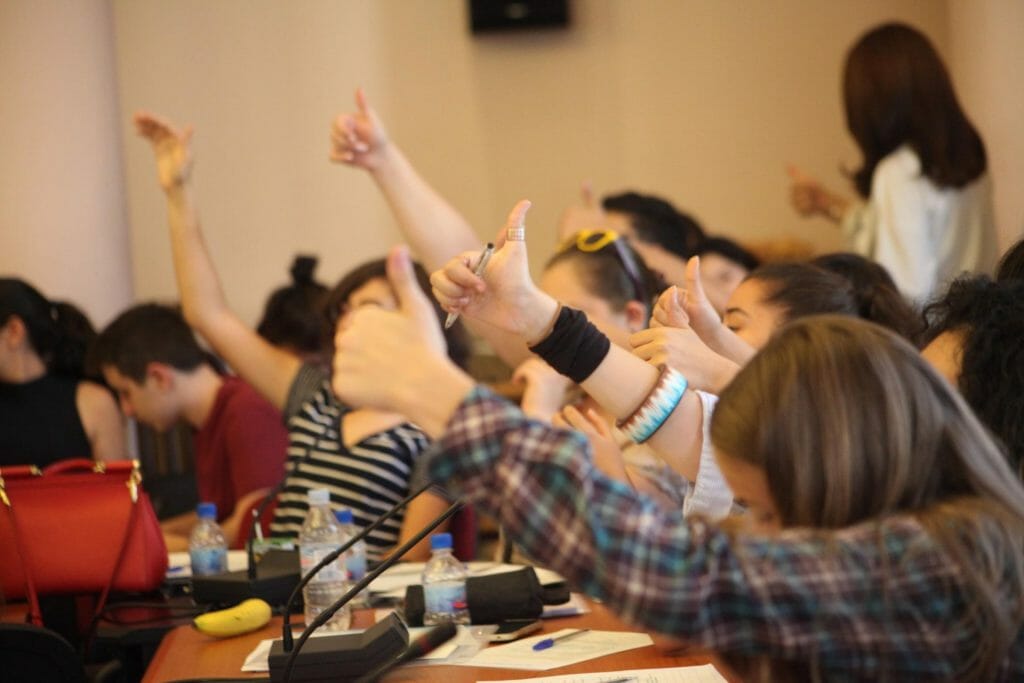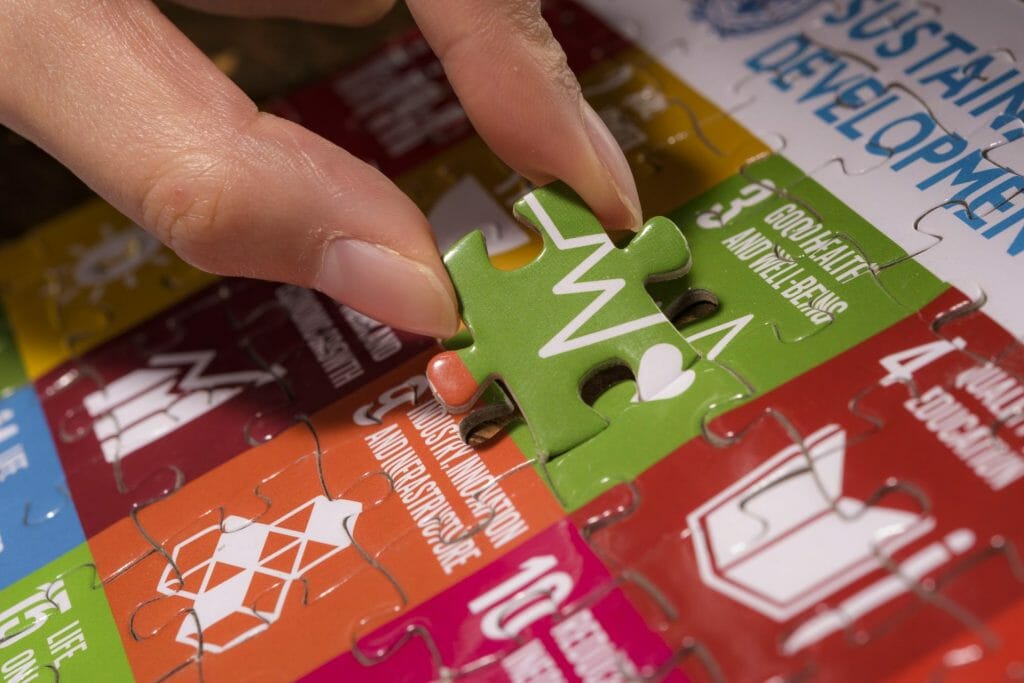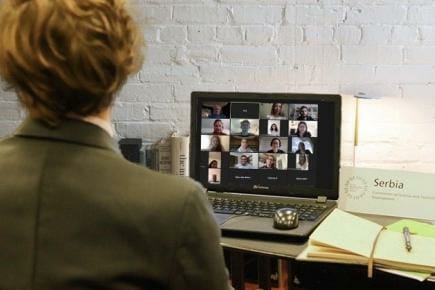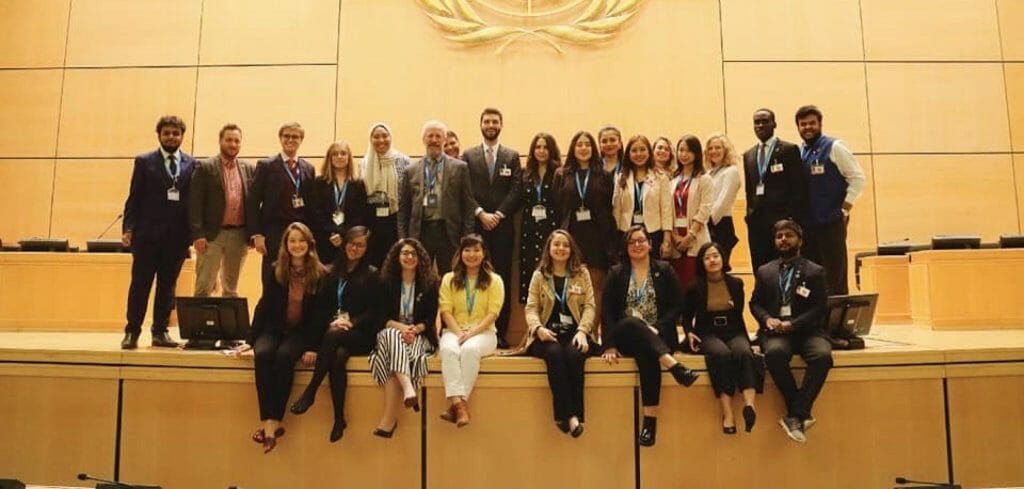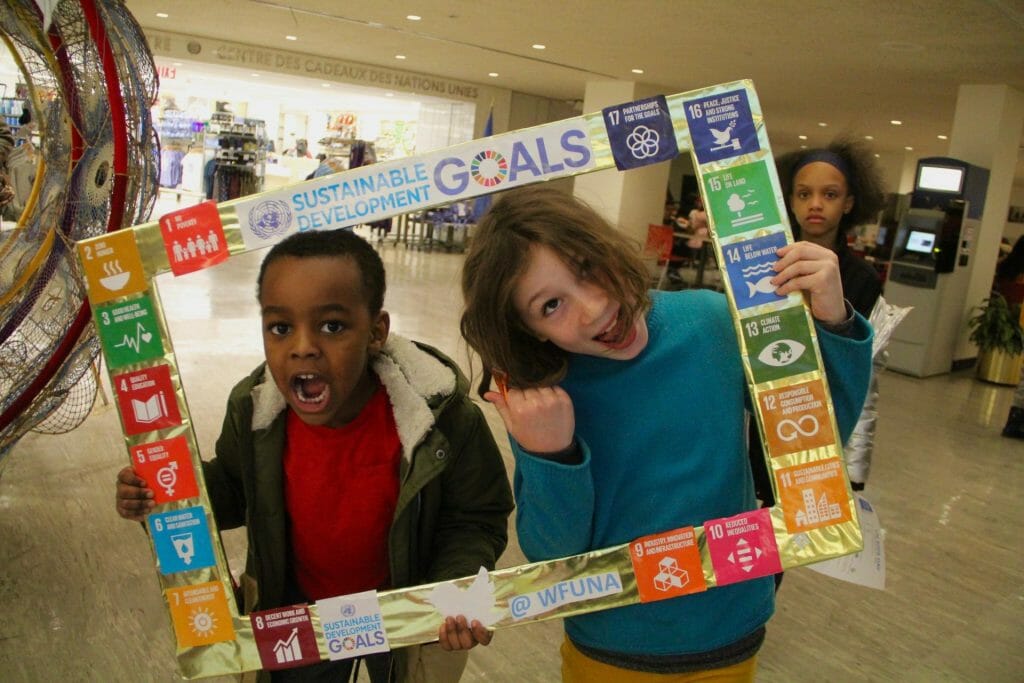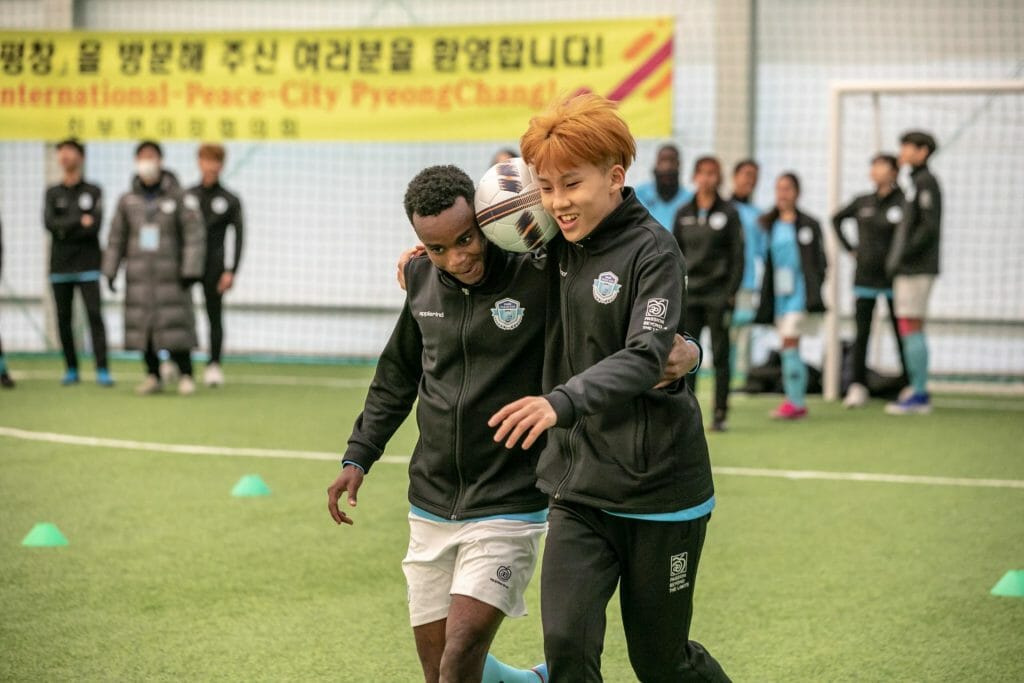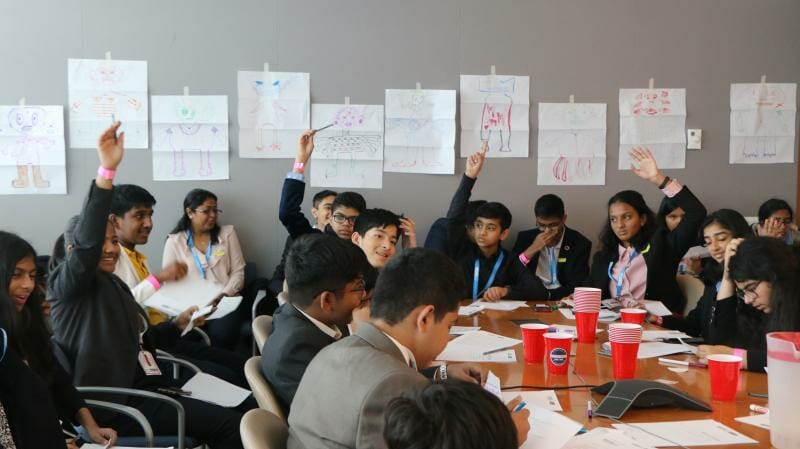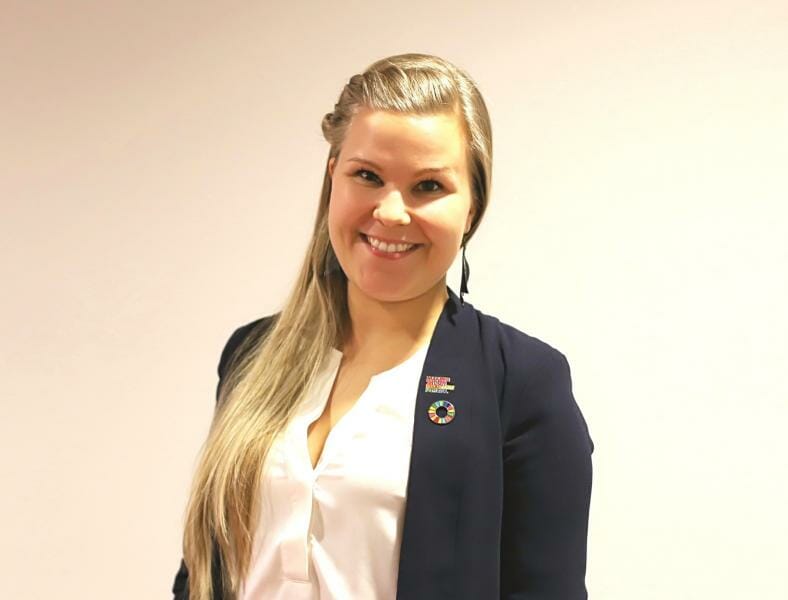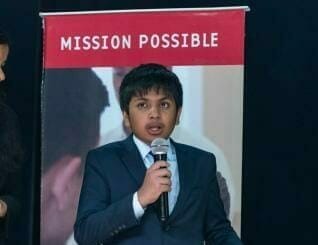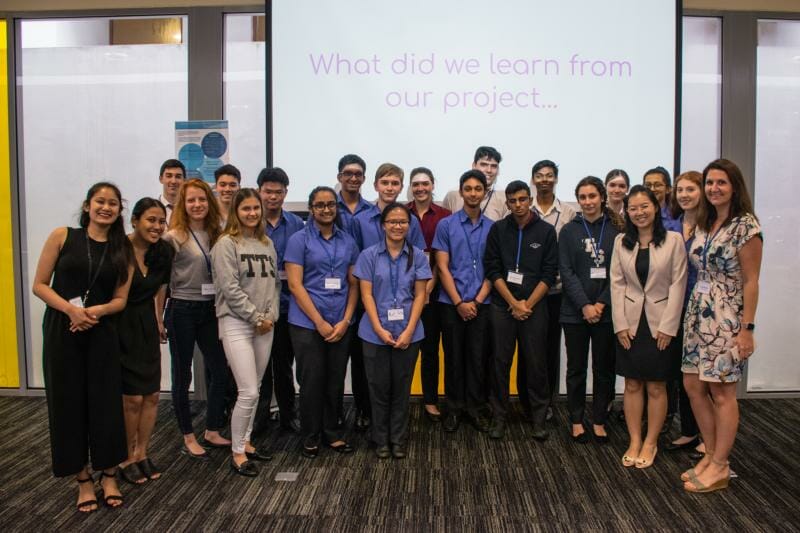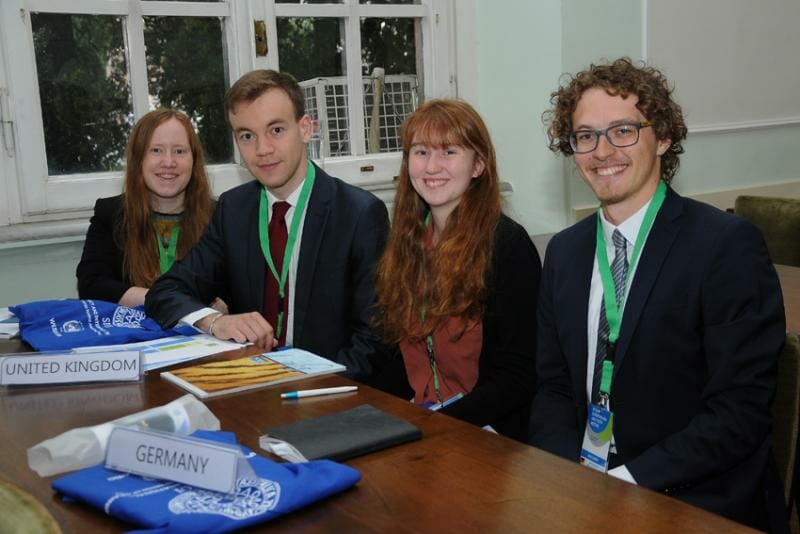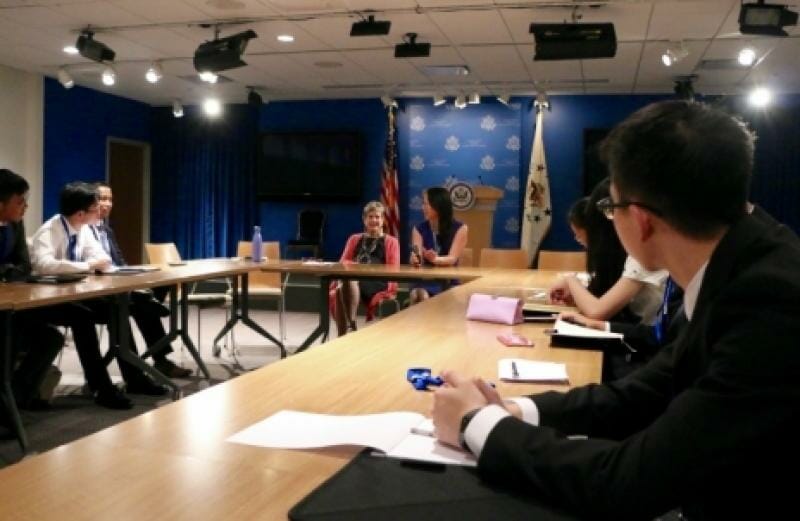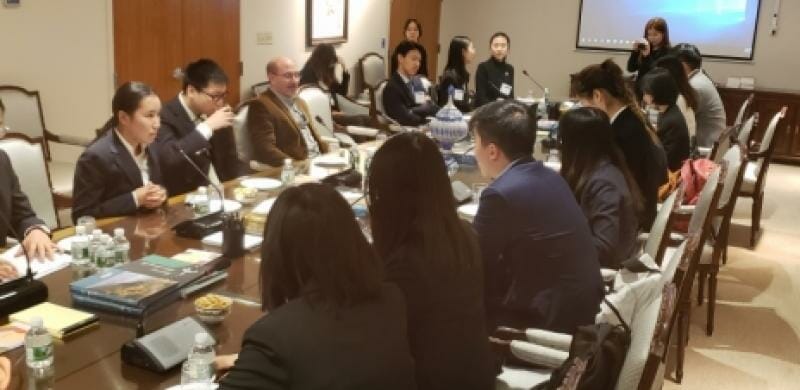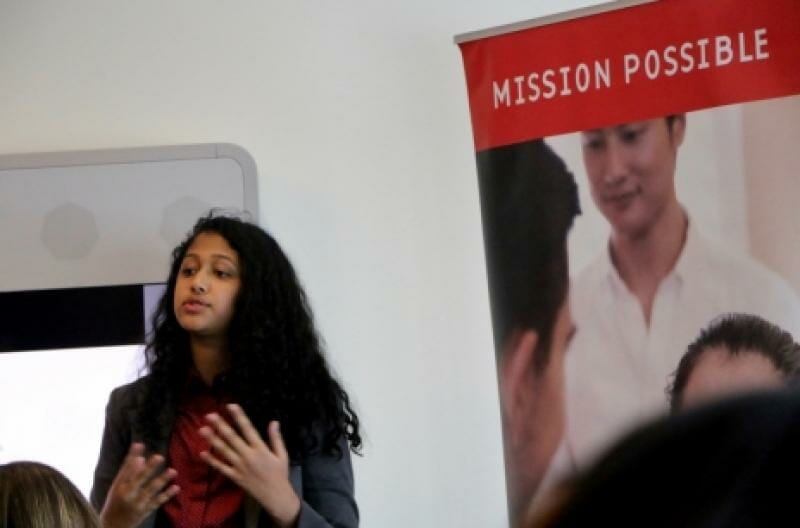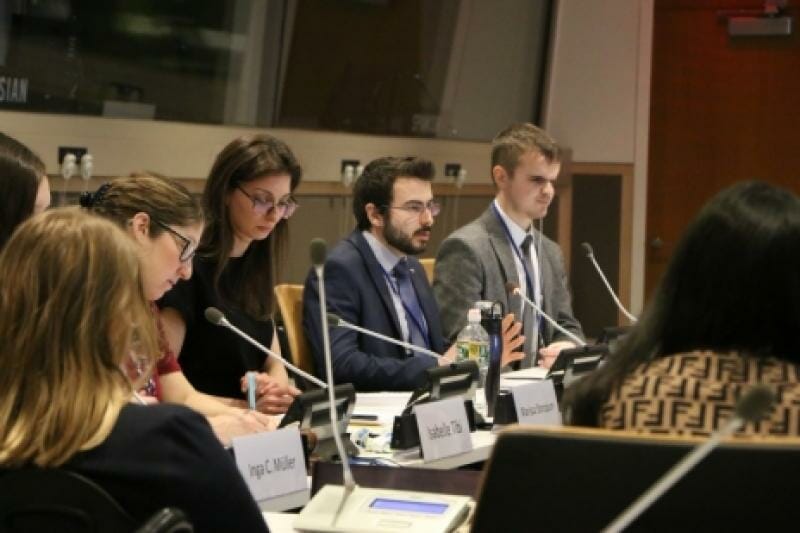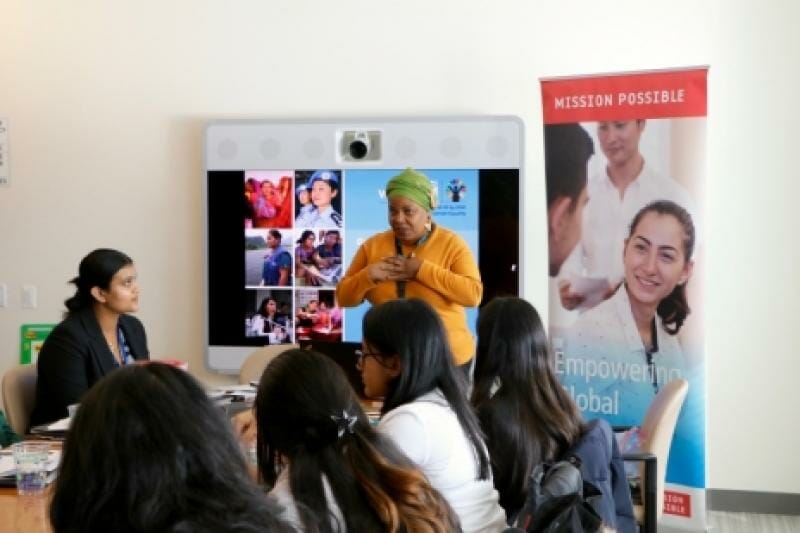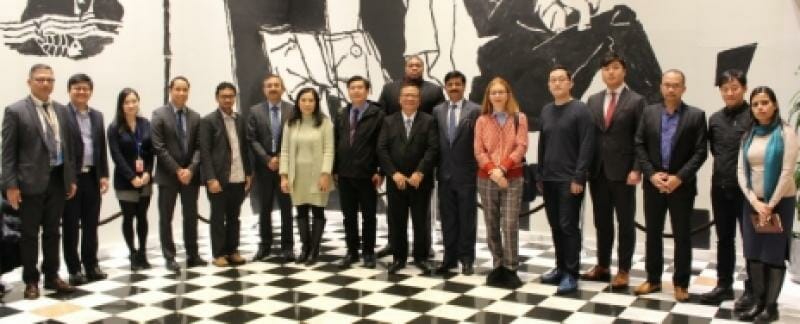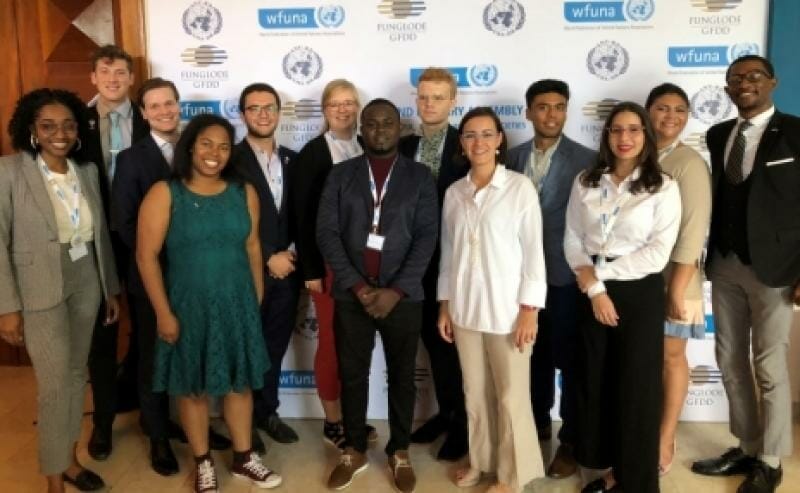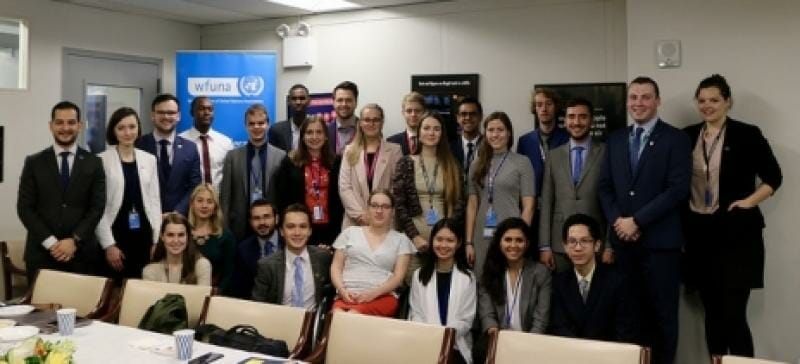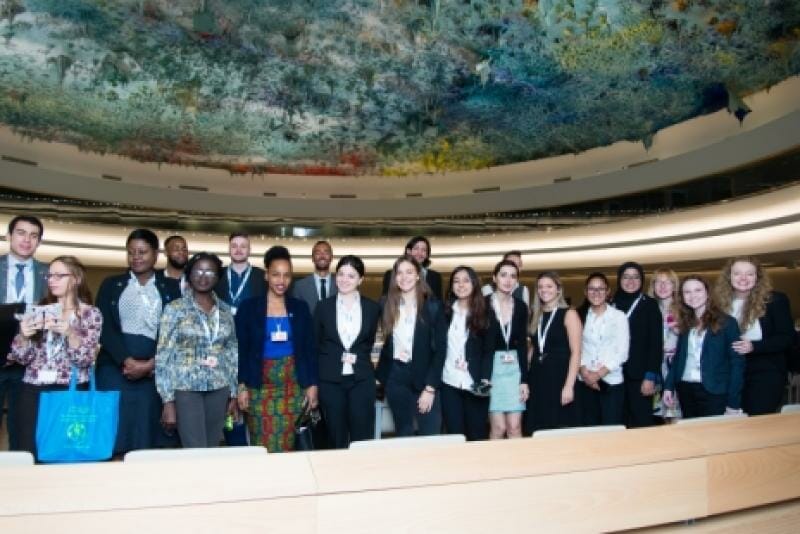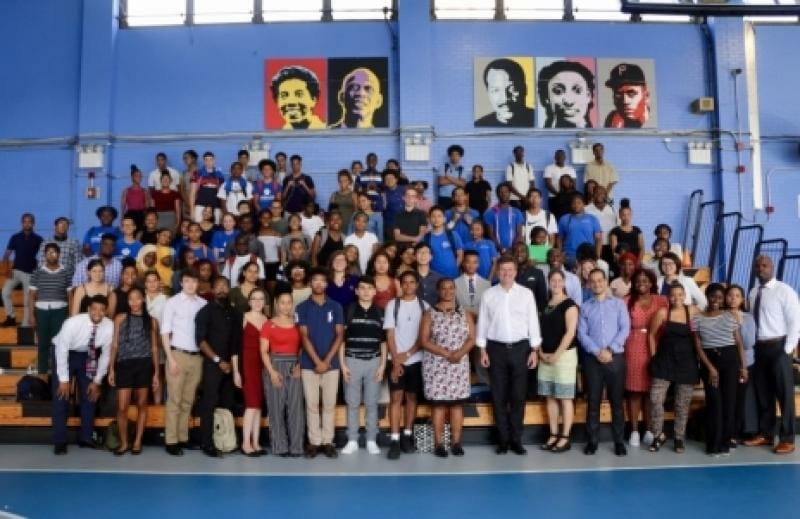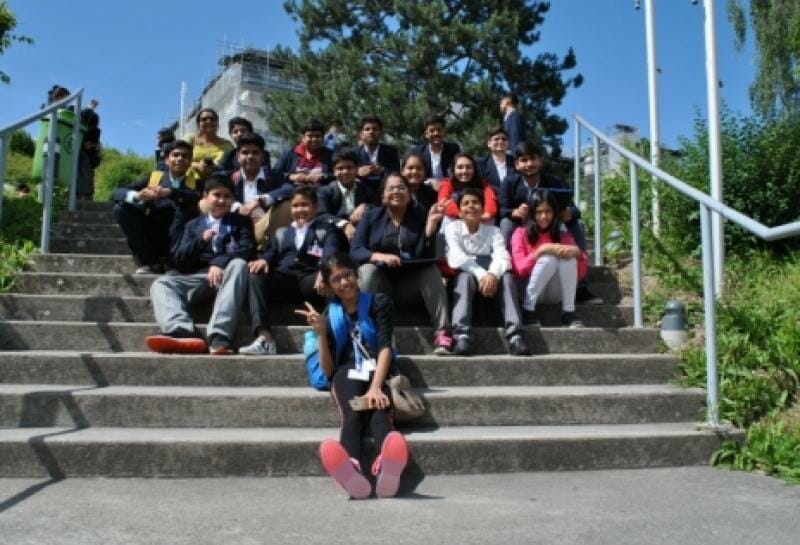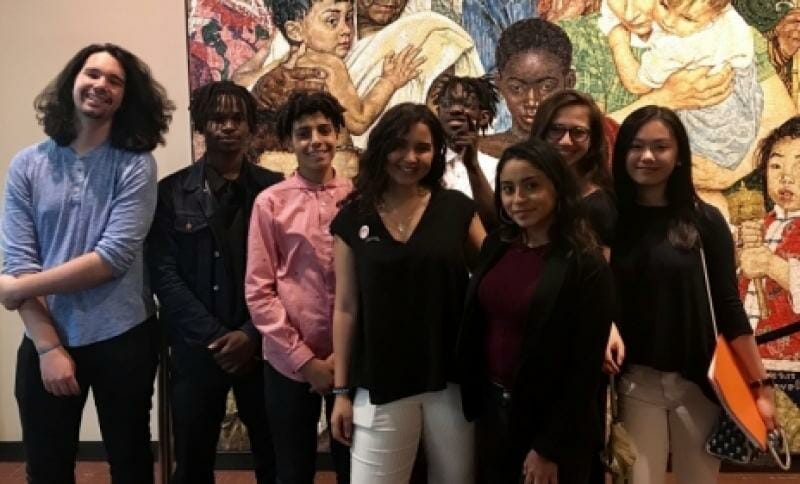From 25 – 29 July 2016, WFUNA held its sixth Human Rights Youth program dedicated to building the capacity of young people from its network to implement human rights projects in their communities and engage effectively with UN human rights mechanisms. Twenty-four participants from all over the world attended five days of sessions, which included presentations from various diplomats, UN and NGO staff as well as two days of training in project management. The main objective of the training was to empower youth and equip them with the necessary skills to design and plan their own human rights project, to be implemented in coordination with their UNA and in line with national priorities.
After the training, participants returned to their countries and started implementing a human rights project. Participants report to WFUNA on the progress of their respective projects in the six months following the training. They will submit a mid-term report in January and a final report in April.
WFUNA is assessing their projects against a list of criteria – feasibility; sustainability; coordination with UNAs; relevance; impact; and application of tools acquired during the training.
Africa
Jessica Ann Scott, UNA-South Africa, Quality Education on Human Rights
UNA-SA contributes towards achieving the SDGs through the organization of trainings and workshops in a number of local schools. As a youth representative, Jessica-Ann chose to focus on Goal 4 on quality education. Her project consists of organizing several workshops on human rights, aiming to provide participants with a deeper understanding and awareness of human rights through education. Three main activities will be implemented:
- Human Rights Seminars
- Legislative query
- Diffusion on social media of human rights protection
By March 2017, at least 50 high school and university students will have been involved in capacity-building activities in the Western Cape that will enhance their understanding of human rights. The project will reach between 250-500 students by April 2017.
Billy Katungi, UNA-Uganda, Human Rights in Schools’ Curricula
Billy designed a project to to educate the young literate population in Uganda about Human Rights and the various ways in which they can advocate for and/or contribute to their advancement. Billy is working closely with 5 UNA chapters across Uganda to implement community relevant human rights projects. Together with his team, Billy will implement the following activities:
- Hold training sessions for UNA Chapter members in the different institutions of higher learning;
- Make a short documentary capturing the current state of human rights in Uganda;
- Create simple educational materials to be used in awareness campaigns, training sessions and human rights projects;
- Run a nation-wide integrated social media campaign with the chapters to raise awareness on the UNA’s activities.
Lisa Mutero, UNA-Zimbabwe, Raising Awareness on Women’s Rights
Lisa’s project is contributing to reach Goal 5. It is targeting young girls and women – especially from marginalized communities – to provide them with an understanding and knowledge of their rights. Too often, women’s rights are not respected and the pattern is perpetuated as a result of a lack of awareness. The project aims to raise awareness amongst young girls and women on the existence of structures and organizations to help them in case of violation of their rights.
Lisa plans to reach 1 000 girls in schools and 350 women in churches. She will organize 3 capacity-building trainings on women’s rights during the 16 Days of Activism against Gender-Based Violence Campaign of UN Women. She organized a quiz about women’s rights on Orange Day in schools in October.
Americas
Ayrton Daniel Zazo Girod, UNA-Argentina, The Film Competition on LGBT Rights
Ayrton chose to focus on the issues of violence and discrimination based on sexual orientation and gender identity. His project aims to spread the Principles of Yogyarta as a legal source to protect LGBT people from discrimination and mistreatment in Argentina, and to raise awareness on human rights amongst the community.
With the support of UNA-Argentina, Ayrton will organize seminars and a film competition. By the end of the competition, the team will receive 5 short films addressing issues related to LGBT rights and based on the Yogyarta Principles. The films will be used to raise awareness on the existing Principles and LGBT rights.
Mirella Ballista Callera, Brazil, Project for Migrants (Projeto Migracao)
Mirella had the idea to focus on the integration of migrants in Brazil. Through Project Migracao, Mirella aims to improve the cultural integration of migrants in the community of Sao Paulo through the organization of a Cultural Festival. On the occasion of this festival, migrants will be invited to share their traditions through cultural activities such as dancing, painting, and cooking.
The project activities are implemented in two times:
- Academic approach: raising awareness on the integration of migrants amongst scholars and students through seminars;
- Direct approach with migrants: providing migrants with a weekly consulting service in Sao Paulo.
Mirella and her team have already organized a seminar at the University of Sao Paulo, with the presence of migrants, professors, and students of the School of Law.
Facebook page
John Wojcik, UNA-Canada, School Readiness Program in Hamilton
John chose to implement the School Readiness Program for newcomer, immigrant and refugee youth. Too often, new comers are being placed in grades based on their age instead of their academic abilities. To bridge this gap, UNA-Canada designed a project that provides one on one academic mentoring support weekly for youth. Specific emphasis is placed on improving reading and numeracy skills as a fundamental foundation for academic success.
The project’s activities contribute to integrating youth in the Canadian community through three approaches:
- Ready children: success in school determined by behaviors and abilities;
- Ready schools: schools support a smooth transition for children, promote learning for all children and bridge the cultural divide between home and school;
- Ready parents: parental support and involvement in children’s early learning and development.
By the end of the project, in April 2017, the program will enable a successful transition to school environment for at least 25 children. John works in partnership with Empowerment Squared, whose objective is to empower youth through academic success, which is a key indicator of future goals of the Hamilton community. Other partners include Industry Education Council, Immigrant Women Centre, and McMaster University students’ associations.
Website & Facebook page
Viera Lopez, UNA-Dominican Republic, The Right To A Fair Trial
Viera chose to focus on the issue of access to justice and spread the idea of access to a fair trial for all citizens, regardless of their economic and social background. Viera’s project is targeting 1 000 students from 13 to 25 years-old and aims to raise awareness on human rights issues through seminars and capacity-building trainings.
UNA-Dominican Republic (UNA-DR) focuses on raising awareness on article 69 of the 2010 Dominican Republic Constitution, stating that “every person, in the exercise of their legitimate rights and interests, has the right to obtain effective judicial guardianship, in respect of the due process”. Lawyers and specialists joined the project and will support the program and participate in capacity-building seminars.
By February 2017, UNA-DR will have set up a legal query platform for youth having participated in trainings and seminars. At the end of the project, in April 2017, the target audience will be aware of how to report a violation of human rights in Dominican Republic.
Jennifer Lee, USA, Youth Alliance for Health as a Human Right (YAHHR)
Jennifer chose to tackle the issue of access to health care in the US, as a prerequisite to sustained health. She designed her project based on the Constitution of the World Health Organization, which states that health is “one of the fundamental rights of every human being”. Health should thus be a public good rather than a private commodity. Through her project, Jennifer insists on the fact that greater attention must be given to advancing accessibility, acceptability, and affordability of health care.
YAHHR is working to move US health care policy towards human rights principles by engaging youth in the political process. The Alliance implements the project in two phases: (1) registering and pledging youth to vote, raising awareness of health care issues in the US; (2) empowering youth to vote for elected officials championing policies that push US health care policies towards human rights principles.
Jennifer’s objective is to reach more than 3 000 youth who will be registered/pledged to vote and hold workshops. YAHHR has already implemented workshops in a few universities across the USA (Yale, Georgetown, and UC Berkeley).
The objectives are to:
- Inform youth about the principle of health as a human right;
- Give details of US health care policy;
- Provide information about actions individuals can take to push members of Congress to advance policies.
Website & Facebook page
Rina Patel, UNA-USA, Youth Engagement within UNA-USA
Rina is focusing on youth membership within UNA-USA. She wishes to increase and diversify youth engagement with UNA and WFUNA through encouraging wider participation in global events and implementation of human rights projects with Campus Chapters of UNA-USA. She will provide workshops on the SDGs and human rights mechanisms.
Rina, together with her team, will provide workshops on Project Cycle Management tools and SDGs. As an outcome of the trainings, small human rights projects will be implemented in 5 chapters of UNA-USA.
José Sirven, UNA-USA, Homelessness Among LGBT Youth
José chose to target the issue of homelessness among LGBT youth as a result of family rejection or abuse in the USA. The rate of LGBT youth homelessness in South Florida is estimated at 35%. José aims to prevent youth homelessness through sensitization on existing resources that can ensure youth protection and safety.
The project targets 15 schools. José and his team will reach high school students through an informational video to raise awareness on the risks of homelessness. An awareness campaign through social media has also been put in place.
Johnny Vang, UNA-USA, The Health on the Block
Through his project, Johnny aims to (1) contribute to eliminating health care disparities in the USA by increasing the amount of students from a modest background in the health care profession; and (2) provide free health care to low-socioeconomic families in North Carolina. Today, a majority of American citizens avoids visits to the doctor due to their financial restrains. The project allows low socio-economic families a chance to visit and meet with doctors and specialists and gain a free comprehensive summary of their health.
By spring 2017, at least 100 people from the undeserved, low socioeconomic and minority population will receive free health care check-up. Johnny also aims to sensitize youth on university opportunities to pursue a degree in medicine.
Partners include UNC Health Care, UNC School of Medicine, UNC Family Medicine Center, and North Carolina Health Care Access Program.
Facebook page & Website
Europe
Sona Makyasan, UNA-Armenia, The Absent Girls of Armenia
Sona’s project aims to increase the public engagement in advocacy campaign addressing the issue of sex-selection abortions in Armenia, as a result of gender inequality. As a result of sex-selective abortions, crime rates are increasing as well as women trafficking, migration of men, and women health issues. Sona put in place an advocacy campaign against sex-selective abortions.
Sona, together with her team, will organize (1) 6 awareness raising trainings for students, (2) 2 meetings for case study articles research and preparation, and (3) 3 meetings with NGOs to coordinate activities implemented on the topic and evaluate the results.
Niklas Rendboe & Monique Verdier Rasmussen, UNA-Denmark, The Defense of Human Rights in the Political Discourse
Monique and Niklas have decided to tackle the rising criticism of international organizations and mechanisms such as the UN Conventions on human right in Denmark, both within the political discourse and among the population. To bridge this gap, UNA-Denmark is currently developing materials for schools, which consist of background information on human rights and games to sensitize students on human rights.
The objective of the project is to strengthen the defense of human rights in the political discourse. For this, Niklas and Monique chose to target 5 000 beneficiaries – whose 500 are students – as a result of the implementation of this project.
Monique and Niklas will implement 3 main activities by April 2017:
- Publish 2 articles in Danish newspapers on current human rights issues;
- Organize 5 human rights events in different Danish schools across the country;
- Host a human rights event at the Culture Night in Copenhagen in November 2016.
Irakli Malania, UNA-Georgia, Open House
Irakli’s project aims to protect and assist over 500 refugees and humanitarian status holders from various countries, including Ukraine, Iraq, and Syria. For this, UNA-Georgia has opened the Urban Refugee Centre (Open House), in partnership with the Office of the UN High Commissioner for Refugees to welcome refugees.
The objective of the project is to ensure the protection, integration, empowerment, and self-reliance of refugees and asylum seekers in Georgia through:
- Improvement of access to legal assistance and legal remedies;
- Improvement access to and quality of status determination procedures;
- Development and/or strengthening of law and policy on refugee matters;
- Opportunity for refugees to meet and connect with other refugees and asylum seekers;
- Support to refugee communities to grow into a stronger, self-managed community;
- Practical solutions for a lasting social, cultural, and economic integration within the Georgian society.
The project manages the Open House as a participatory place, where all activities and services are designed, developed and driven by the refugees’ needs and inputs. The integration support services are put in place through community mobilization activities: (1) experience sharing, interaction, and cultural exchange; (2) Community building, networking, and advocacy; (3) Community self-management and volunteer engagement; (4) Information, awareness-raising, and peer education; (5) Training opportunities.
Website
Karen Lena Oskarsdottir, UNA-Iceland, The Peace Games
Karen chose to implement a project on the SDGs as a way to promote peace in Icelandic society. Through education, she aims to sensitize primary school students on the SDGs, which should introduce them to different perspectives of seeing the UN-related issues such as poverty, gender equality, environment, and peace and security.
By the end of 2016, 100 students will have participate in the game and receive training on UN-related issues and introduction to the SDGs. By the end of the program in April 2017, 80% of participating children will be aware of the SDGs and see peace as an idea, action and an attainable goal.
Sue-Ellen Njekwa, UNA-Sweden, Integration of Refugees
Sue-Ellen chose to focus on the integration of refugees in the Swedish society through a human rights-based approach.
Sue-Ellen’s project aims to contribute to better integrate foreigners in the Swedish society through cultural sharing. She will implement an annual cultural event in Stockholm that aims to allow migrants to share their cultures and traditions. Sue-Ellen will organize art exhibitions, food exchange activities, and game sports.
Catalina Lopez Cuevas, United Kingdom, Gender-Based Violence Workshops
Catalina focuses on gender-based violence as a violation of human rights in the UK. Her project is targeting 150 university students from 18 to 21 years-old. Together with her team, Catalina will raise awareness on the risks and consequences of gender-based violence.
Catalina has established partnerships with the Women’s Association of the University of Birmingham and the Women’s Aid organization of the Umbrella Health Clinic. The university environment will allow her to target youth and encourage students from different backgrounds to get involved in the project e.g. psychology students, medical students.
The workshops will focus on three main areas:
- Introduction to the topic: gender-based violence in society;
- Participatory activities: students can share their knowledge and discuss gender-based issues;
- Impact in society from a psychological point of view.
Middle East
Laith Yousif Abu-Nawwas, Jordan, Integration of Syrian Refugees in the Jordanian Market
In response to the flow of Syrian refugees in Jordan, Laith designed a project to raise the level of integration in the Jordanian market by involving Syrian refugees in the local market and by giving vocational training and support opportunities for Syrian’s to start practicing an occupation that would help them secure profit resources.
Laith’s project will provide Syrian refugees with tools, resources, and needed support to build their own workshops. On the long-term, the project will affect positively the local market positively and raise the level of participation to national income.
The project will be resulted in two incomes:
- To increase the growth of Syrian workers in local market by 10% at the end of 2017
- To raise awareness level among Jordanian people about the positive impact this integration would leave over the market as well as the national income of Jordan.
Middle East
Laith Yousif Abu-Nawwas, Jordan, Integration of Syrian Refugees in the Jordanian Market
In response to the flow of Syrian refugees in Jordan, Laith designed a project to raise the level of integration in the Jordanian market by involving Syrian refugees in the local market and by giving vocational training and support opportunities for Syrian’s to start practicing an occupation that would help them secure profit resources.
Laith’s project will provide Syrian refugees with tools, resources, and needed support to build their own workshops. On the long-term, the project will affect positively the local market positively and raise the level of participation to national income.
The project will be resulted in two incomes:
- To increase the growth of Syrian workers in local market by 10% at the end of 2017
- To raise awareness level among Jordanian people about the positive impact this integration would leave over the market as well as the national income of Jordan.


